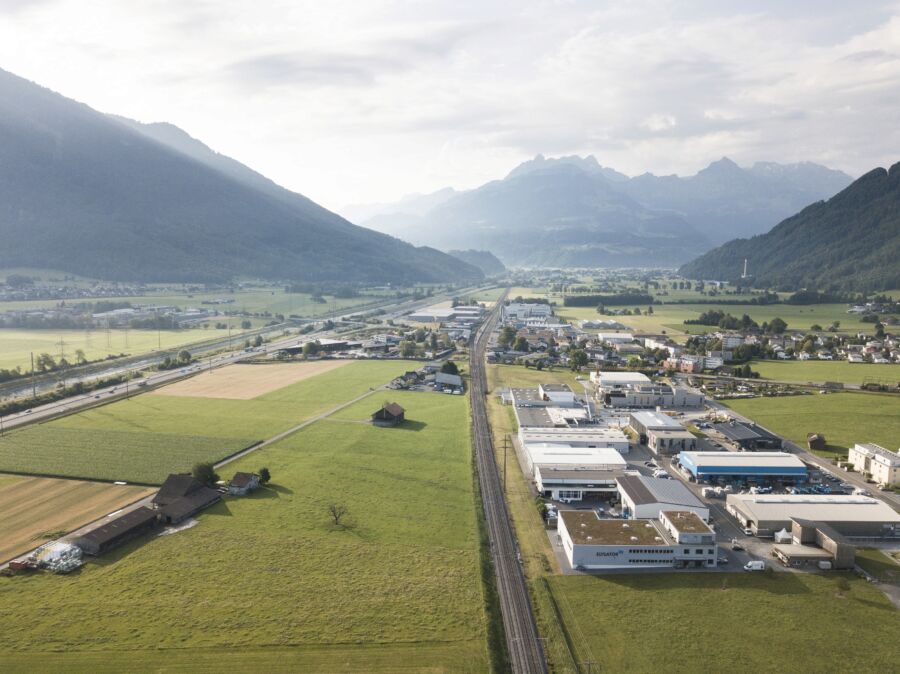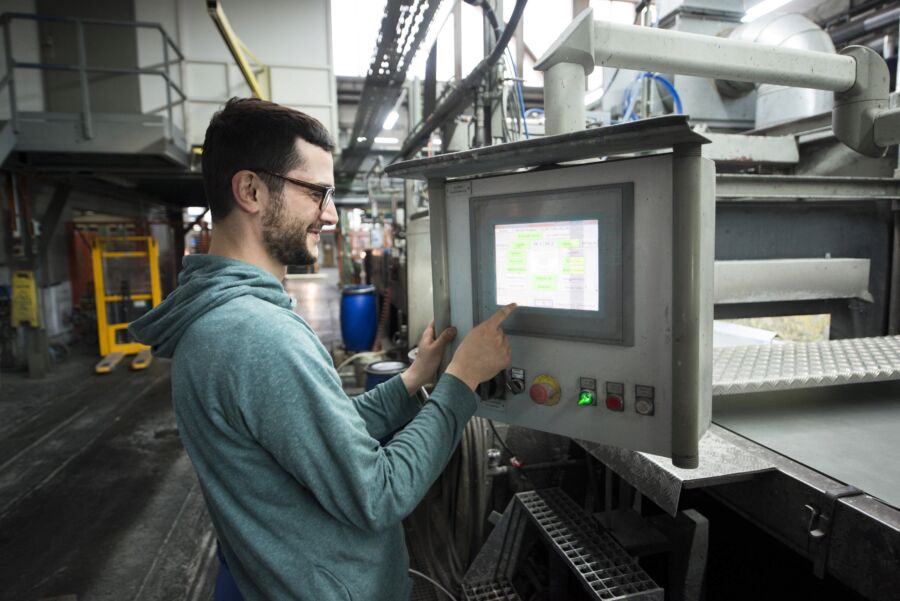Multi-year programme
2020–2025 Digital Transformation
The Canton of Glarus is bowing to technological change and playing a pioneering role in the region. The “Transformation to Digital Work in all three sectors” multi-year programme was approved by the Department of Economic and Internal Affairs (DVI) on 30 June 2020. It identifies potential, creates framework conditions and defines targeted measures. The Cantonal Office for Economy and Labour (AWA) will put this into practice from 2020 to 2025.
The Canton of Glarus local government has set itself a total of 18 objectives for the 2019 to 2022 legislative period. These contribute to the long-term priorities of the 2020 to 2030 Political Development Plan. One of the government’s objectives is developing a cantonal Digitalization Strategy and this was approved in November 2019. The Department of Economic and Internal Affairs (DVI) set the ball rolling and charged the Cantonal Office for Economy and Labour (AWA) with implementing the relevant economic measures for the Digitalization Strategy in June 2020.

Image: Industry in Bilten with the Mürtschenstock in the background (Samuel Trümpy)
Focus on four topics
The 2020 to 2025 multi-year programme focuses on four topics. The topic “Further developing basic infrastructure as a basis for networking” is a prerequisite for the implementation of the other topics in focus.
1. Further developing basic infrastructure
Basis for networking: a reliable and modern IT infrastructure creates the basis for digitalization in all areas (population, companies, administration). Modern and cost-effective infrastructure creates the basic conditions for all market participants to bring about the digital transformation.
2. Building digital expertise
Securing employability: the technological transformation is tangible. Established occupations are disappearing and new ones coming on the scene. It is still unclear what expertise and skills will be in demand in the future. Ongoing education is very important in order to maintain the employability of the population.
3. Developing digital administrative services
Developing efficient, digital administration: digital administration with transparent and efficient processes interconnected across agencies and departments promotes the attractiveness of the Canton of Glarus as a place to work and do business.
4. Fostering innovation
Attractive framework conditions for private business give companies and start-ups the freedom and flexibility required to develop innovations and, in turn, more innovative companies contribute to creating a sustainable, attractive place to work and do business.
Eight measures
Based on the four topics in focus, the 2020 to 2025 multi-year programme has eight topics in focus that the Office for Economy and Labour (AWA) implements specifically.
1. Documenting fast Internet coverage
Fast Internet is a basic requirement for mobile and location-independent work, global collaboration and personal ongoing education. The first step therefore is an As-is analysis documenting the situation in the Canton of Glarus. Measures for the coming years are taken from the newly created overview by the Cantonal Office for Economy and Labour (AWA) and the technical operations of the three municipalities.
2. Putting together a fast Internet support package
After reviewing the matter, it is then important to bring about the benefits of digitalization. Selective gaps are addressed and eliminated. The support package includes several submeasures to provide fast Internet in mountainous and peripheral areas. These include, for example, supporting pilot projects, contributing to infrastructure costs or developing access points.
3. Awakening interest in STEM subjects
The technological transformation creates jobs in technology and IT. The demand for expertise in Science, Technology, Engineering and Mathematics (STEM) is growing. The nationwide and regional shortage of skilled workers makes it necessary to promote STEM subjects from the get-go in primary school. In order to highlight job prospects for these subjects, the Office for Economy and Labour (AWA) offers opportunities in and outside of school to acquire skills and get inspired.
4. Fostering basic digital skills
Digitalization is creating new fields of work, but traditional jobs are also disappearing. It is not yet clear what form this change will take but it is important to prepare people for it. A stimulus programme should bundle measures – e.g. training adults or new training paths in the area of digitalization – and implement them in a targeted and coordinated manner.

Image: Eternit (Switzerland) Ltd Niederurnen (Samuel Trümpy)
5. Improving training for adults
Education and ongoing training is a key element in the digital transformation. The Swiss Federal Government and other cantons already offer programmes that the Canton of Glarus can also use to best promote such training. The education and ongoing training offers should be accessible and familiar to the entire population of the Canton of Glarus.
6. Developing digital services for SMEs
Digital, transparent, interconnected and efficient administration promotes the attractiveness of the Canton of Glarus as a place to work and do business. That is why efficient digital services, particularly for SMEs, are being promoted – for example, for digital company start-ups. In addition, tools need to be created that can be used throughout the canton, including chatbots or smart paperwork that can also be adapted.
7. Creating start-up momentum
Developing a lively start-up ecosystem creates a sense of momentum for the entire canton. A sustainable impact is achieved when start-ups in a similar field influence each other and close communication occurs. Support measures are included here.
8. Supporting business during the digital transformation
The changes in the environment are challenging for trade, agriculture, artisans, industry, retail trade and tourism. Intelligent technological developments used by mountain farmers, for example, are also interesting for other companies. With this kind of potential, the Canton of Glarus can take on a pioneering role in technology-based business development.
Further information
- 2020-2025 Multi-year programme “Transformation to Digital Work in all three sectors”
- 7th December 2021 Media Release
- 8th July 2021 Media Release
- 22nd November 2021 Media Release
- 2030 Vision MINTGL
- smartglarus.com
- Canton of Glarus 2019+ Local Development Strategy
- 2020-2023 Tourism Strategy
- 2020-2030 New Regional Policy Implementation Programme
- 2019 Pixpolitico report “Glarus Green Valley”
- Cantonal Digitalization Strategy
- Cantonal Structure Plan
- 2019–2022 Legislative Planning
- 2020–2030 Political Development Plan
- 2030 Glarus Vision